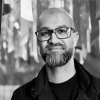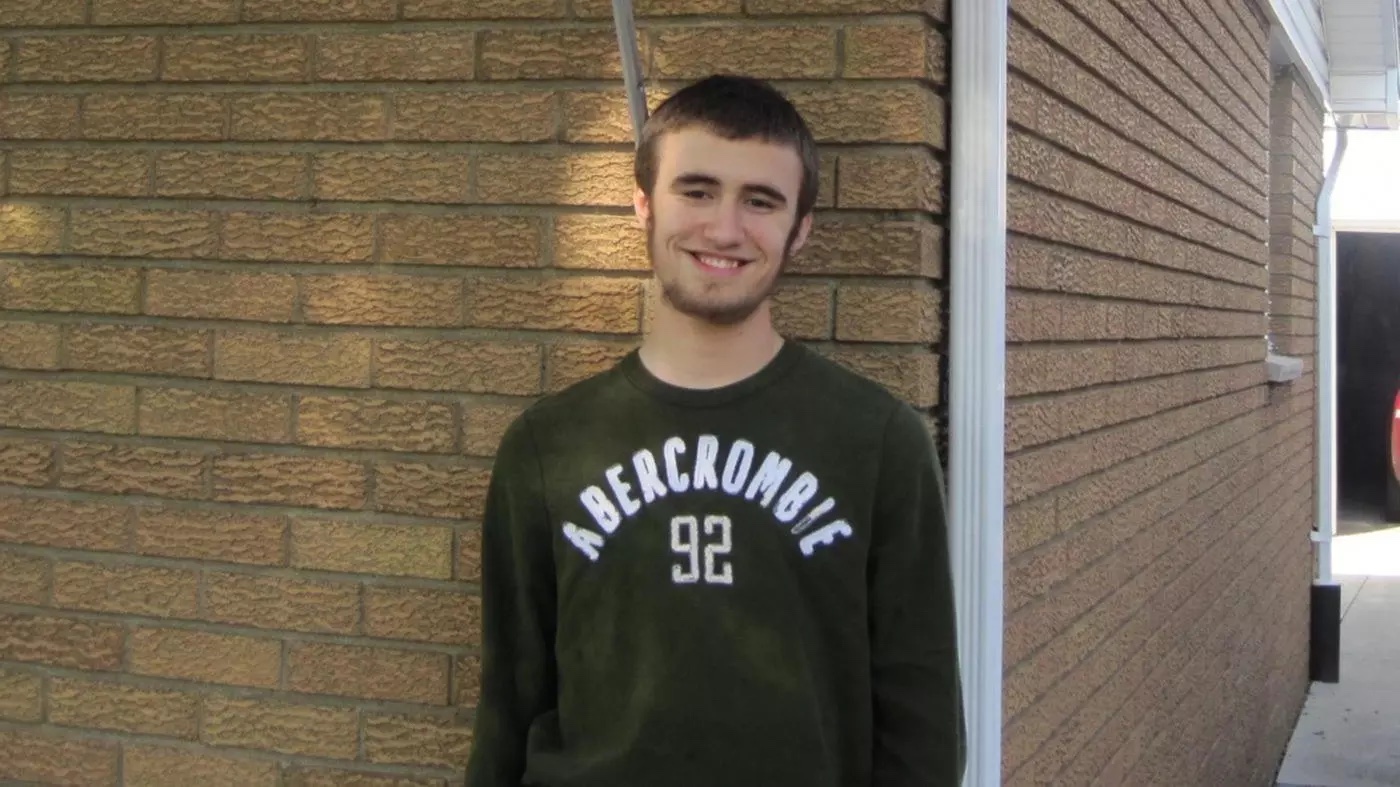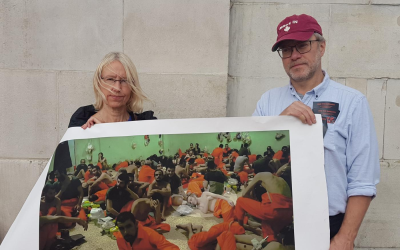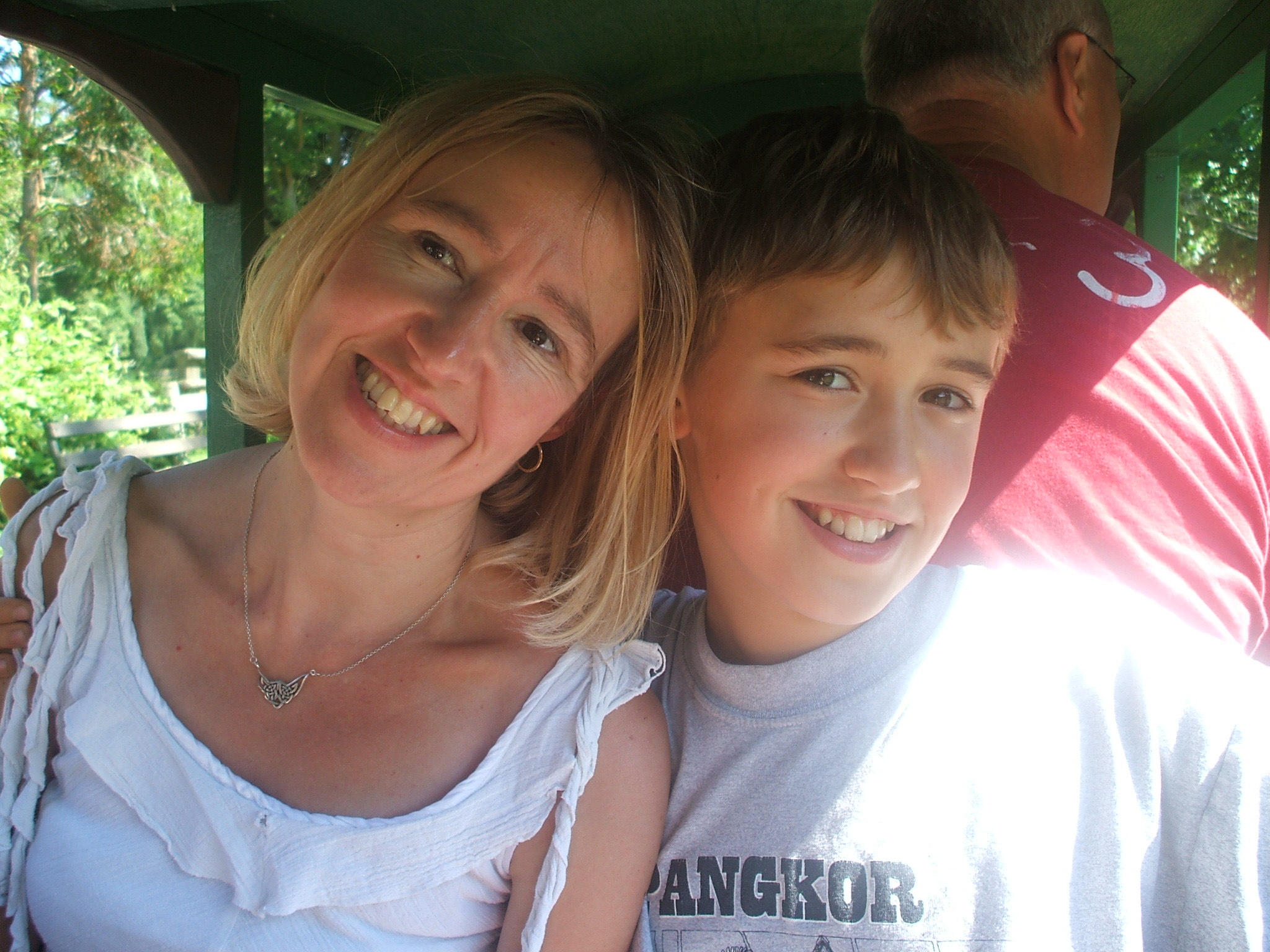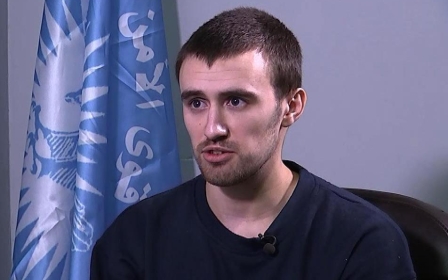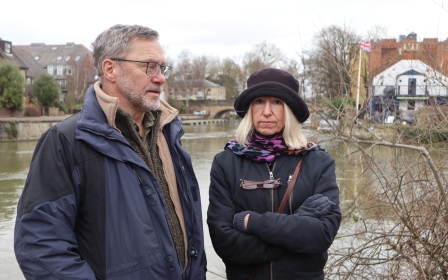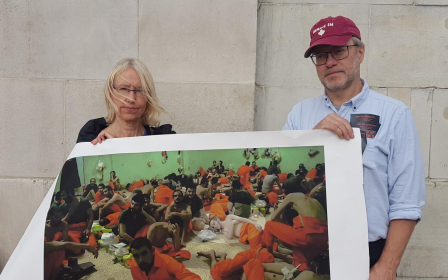Searing account of the dystopian treatment of John Letts and Sally Lane
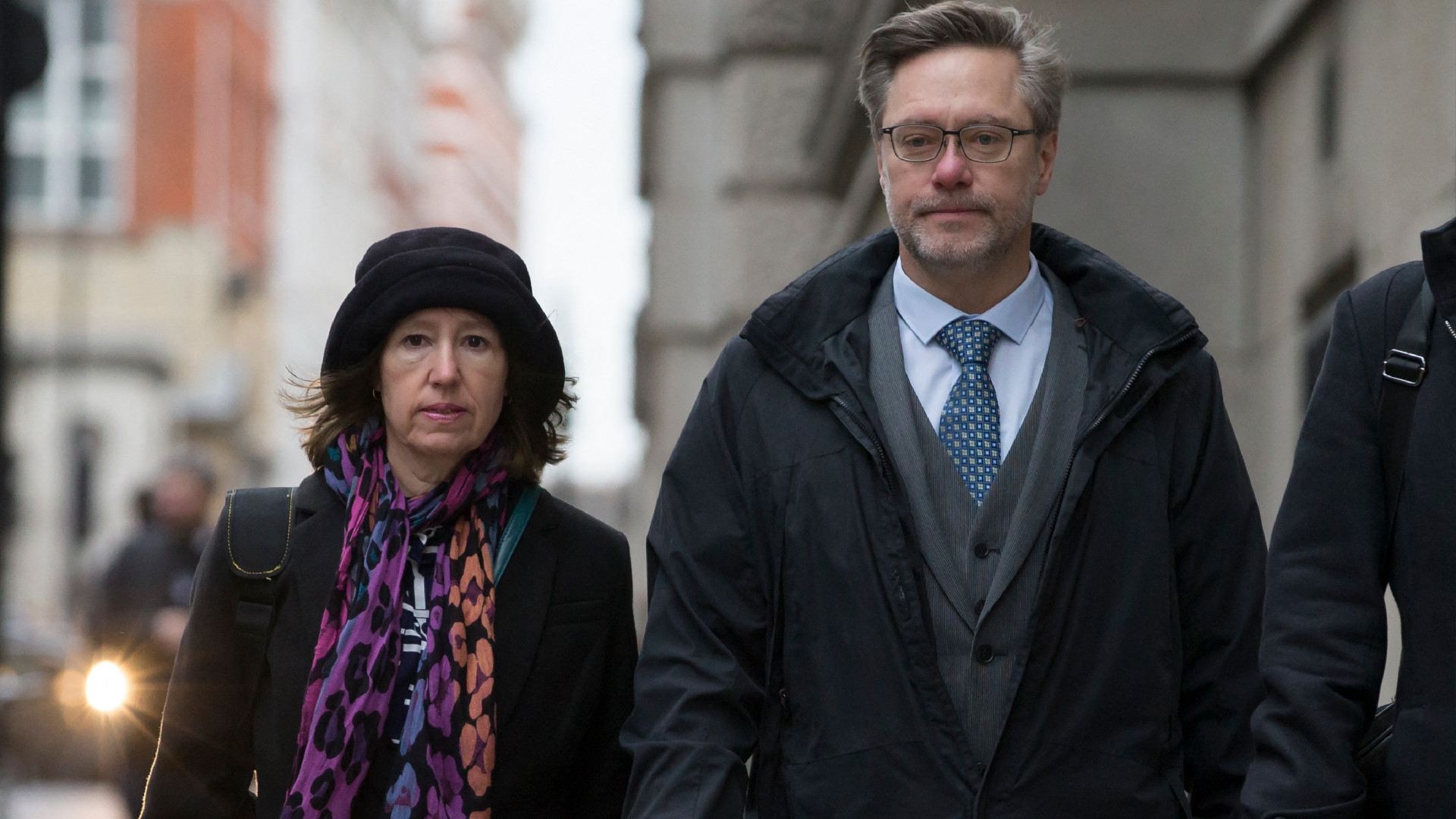
It took around 16 years after the 1999 Columbine High School shooting in the US for Sue Klebold, the mother of Dylan Klebold, one of the two teenagers responsible for the massacre, to write about the pain of that day and share a glimpse into their family life.
Writing the introduction to the 2016 memoir, A Mother's Reckoning, Andrew Solomon explains how he expected to be able to easily identify in Sue and her husband, Tom, the trajectory that would permit a Dylan Klebold to emerge…except he could not:
"…we want to believe that parents create criminals because in supposing that, we reassure ourselves that in our own house, where we are not doing such wrong things, we do not risk this calamity…I didn't want to like the Klebolds, because the cost of liking them would be an acknowledgement that what happened wasn’t their fault, and if it wasn’t their fault, none of us is safe."
The idea that none of us are safe is compelling; it sits at the heart of the moral panics that emerge in the aftermath of violence. Blame parenting, blame Marilyn Manson, blame rap music. Politicians and the media thrive on a diet of presenting existential crises that can be pinned on "outsiders" - those who may look or behave differently from expected norms.
Stay informed with MEE's newsletters
Sign up to get the latest alerts, insights and analysis, starting with Turkey Unpacked
When we transpose such moral panics to the world of terrorism and political violence, we see a magnifying of the existential argument by many degrees. The fear that is incited by pointing out terrorists in our midst - or even those who are terrorist-adjacent - is like no other fear within public discourse.
In her new memoir, Reasonable Cause to Suspect, Sally Lane, the mother of Jack Letts, a British-Canadian Muslim convert accused of residing in territories controlled by the Islamic State (IS) when he was 18 years old, writes about this particular hysteria that led to her son becoming an enemy of the state.
'Reasonable cause to suspect'
While Lane shares personal insights on her family and son who would one day be labelled by international media outlets "Jihad Jack", she more crucially explains how she and her husband, John, became targets themselves as allegedly terrorist-adjacent and criminally prosecuted by the UK government.
It is a cautionary tale of what happens when the criminal justice system loses all sense of itself - chasing phantoms for the purposes of political leverage
It is a cautionary tale of what happens when the criminal justice system loses all sense of itself - chasing phantoms for the purposes of political leverage, rather than any consideration for what compassion might mean when human lives are at stake.
Yet, unlike the Klebolds, where an extremely violent act sat at the heart of everything that happened to their family, Lane's life is turned upside down by a series of unproven assertions about who Jack Letts actually is, and what he stands for - her own life not only being judged adjacent to those assumptions in the court of public opinion, but ultimately prosecuted as a matter of criminal fact.
In the first 10 pages of Lane's account of her son being located in Syria, we are treated to the views of counterterrorism police officers who attempt to explain the legal landscape in 2015 that Jack was mired in.
The police had "reasonable cause to suspect" that Jack was engaged in terrorism based on two reasons: that he had expressed anti-western views on Facebook and that they believed him to be residing in Raqqa, Syria - under the control of IS at the time.
The police further claimed that they had secret intelligence (which, according to Lane, turned out to be untrue) but at the same time acknowledged that, at that moment, there was "no evidence that Jack has done anything wrong". The police, however, explained to the Letts family that by virtue of Jack being assumed to be in Raqqa, he was supporting terrorism: "If you're living and working in the city, you are by definition supporting the state by paying taxes and by participating in the caliphate."
The police officer, DS M, was making the argument that regardless of a person's reason for living under a regime that was involved in violence, they would be complicit due to the taxes they paid. Ironically, this is the very logic that al-Qaeda used to attack targets in the West.
The officers explained that it did not matter if Jack had gone there for humanitarian work, or if someone was a kebab seller; any contribution meant legal complicity. Later, they would learn of David Nott, a medical doctor who had been forced at gunpoint to operate on an IS fighter and even moved around IS areas with weapons himself as a preventative measure.
Nott has never been prosecuted for being in territories controlled by IS, presumably because he does not share the same faith as Jack Letts. Further, as noted by Letts' parents, the police argued that someone could just leave if they wanted to, ignoring all of the manifold attempts by those on the ground to leave, and the risks associated with their attempts.
A key topic that Lane addresses is how she attempts to come to grips with the Muslim community in the UK, ostensibly to try and understand Jack better and to see if they would support her family's efforts to help bring him home.
Those who presented themselves as being expertly trained in dealing with "radicalisation", such as Hanif Qadir from the Active Change Foundation and Shiraz Maher from King's College London, initially provided the Letts with advice. However, the nature of the relationship turned as both ended up advising the family poorly, only to later turn into prosecution witnesses against them.
The intertwining of the national security state with civil society and the media became more evident to the Letts family when Qadir introduced them to Richard Kerbaj, who presented as a well-meaning journalist.
The truth was even further than the family could ever have imagined, with Kerbaj presenting what they saw as a wholly distorted image of Jack, and themselves. Giving her reflections of Kerbaj - his very name evoking the deepest of trauma - Lane explains: "Whenever I hear this journalist's name I feel like brandishing a wooden stake and hissing through my teeth."
Kafkaesque alternate world
These betrayals, however, all seemed to vanish next to the treatment the family faced by the police. For several months, they had been speaking to the police, making it clear how desperate they were to see Jack home, and how Jack, who made it clear that he was not a member of IS, was going through his own journey.
The key concern for the Letts was to ensure their son's well-being, and the best way they felt they could support Jack was by sending him money. The police informed them that should they send the money, they might be liable for prosecution, but could not stop them from doing so.
The Letts balanced concern for their own freedom with the intense desire to help their son escape from Syria - genuinely believing that keeping an open line to home would be the best chance to see him return. The problem for them was that they had no idea how far the police would go to pursue a prosecution against them.
Five days after sending the money, Jack's parents were arrested under terrorism laws due to the police "having reasonable cause to suspect that it would or might be used for purposes of terrorism".
There is a sense of bewilderment that accompanies the arrest, charge, prosecution and conviction of Sally Lane and John Letts. In court, their first judge, Lady Emma Arbuthnot, proclaimed that Lane knew exactly what Jack was up to - except for the fact that no one did, not even the security agencies.
How the Letts were supposed to know the details of Jack’s movements and whereabouts was something that the police and judiciary were not really willing to use their own critical faculties to countenance – it was far easier to assume guilt based on location.
The account of the parents' descent into the prosecutorial arm of the state, which had been rallying to secure a conviction and present the worst doomsday scenario to the media, brings to mind Gemma Dowler's book, My Sister Milly, where she recounts the police investigation and media harassment of her own father.
The Dowler family had suffered an immense tragedy in losing Milly, and instead of the state convening to provide succour to the family, both the police and the media did everything they could to present Milly's father as a potential suspect in her disappearance. It seemed that the indecency of doing so was a price worth paying for the headlines.
And that's the thing about the prosecution of the Letts; at all times it comes across as indecent.
This approach by the police was not standard, however. There were instances already known to those of us working in the civil society space, that the police were being somewhat picky about who they encouraged or discouraged from being in contact with their children abroad.
Lane summarises their relationship with the police well:
"...we realised what imbeciles we were to believe that the police could have been acting out of a sense of social welfare. In another situation, their behaviour could be seen as entrapment - ie, they were trying to get us to behave in a certain way so that we would incriminate ourselves. However, in our case, since we were trying to get police permission for a particular action - ie, to send money to Jack - the police could not be accused of trying to entrap us into doing something we wanted to do."
What followed was a Kafkaesque alternate world that the Letts were forced to occupy. Due to the monetary nature of their "offence", they were placed under a terrorism asset-freezing regime, which meant that they were shut out of all banking facilities globally. The asset freezing regime in the UK further placed them under severe financial restrictions. These restrictions included friends not permitted to make purchases for them, lest they also be liable for supporting terrorism.
Out of the three counts that the Letts were being charged on, they were found guilty of one: sending £223 ($282) to Jack's friend in Lebanon who needed help to buy a pair of glasses. This was it. This was why John Letts and Sally Lane entered into the statistics of convicted terrorists in the UK.
When we consider the dystopian treatment of the Letts... it comes down to this: none of us is safe from the arbitrary whims of the state
When you read terrorism data, and see the numbers convicted of offences, it is their story that you are reading in that data, and many like them.
Returning to the words of Andrew Solomon in the context of Columbine, yes, it is true that none of us is safe from the threat of violence – whatever form it may take. Whether it is in the context of school shootings or terrorism.
However, there is another way of thinking through the idea of safety when we consider the dystopian treatment of the Letts, and it comes down to this: none of us is safe from the arbitrary whims of the state.
Once the state convenes in order to cast you as a pariah, there is little that anyone can do to intervene, no compassion that can be appealed to, no common sense that can be applied. You become, and remain, just a part of the data that supports the state's role as the sole arbiter of all that is moral and good - even when the state is partly responsible for the suffering in the world.
The views expressed in this article belong to the author and do not necessarily reflect the editorial policy of Middle East Eye.
Middle East Eye delivers independent and unrivalled coverage and analysis of the Middle East, North Africa and beyond. To learn more about republishing this content and the associated fees, please fill out this form. More about MEE can be found here.


